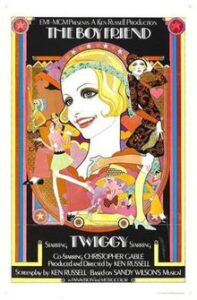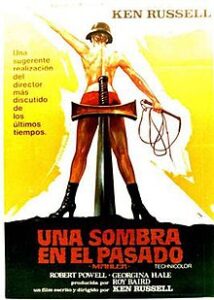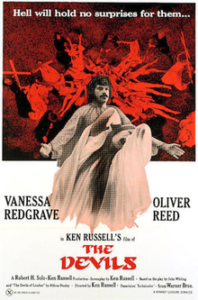The Boy Friend-1971
Director Ken Russell
Starring Twiggy, Christopher Gable
Scott’s Review #1,407
Reviewed October 27, 2023
Grade: B+
With each Ken Russell film, I expect something wacky, and I sit back for a schizophrenic roller coaster ride.
His finest efforts, such as Women in Love (1970), The Devils (1971), and Tommy (1975), offer bombast and weirdness in their own way.
The British director decided to take on The Boy Friend (1971), a reworking of a 1953 traditional musical of the same name by Sandy Wilson, and turn it upside down on its ass. Those expecting a conventional affair with cheery sing-along numbers in perfect symmetry will be disappointed.
The messy project has its ups and downs and meanders off course on more than one occasion. With jagged storytelling and dragging sequences, it makes up for ground with sizzling visuals and costumes. It offers the audience a glimpse of theatrical drama and shenanigans both onstage and offstage.
On its own merits and given that the director is Russell, it gets a marginal thumbs-up, but it is nowhere near as fantastic as his other works.
The plot is a bit confusing, divided into three levels. Level one tells the main story: in the 1920s, in the south of England, a struggling theatrical troupe is performing a musical about romantic intrigues at a finishing school for young women in the south of France.
The cast awkwardly strives to impress a visiting, famous movie director, hoping for fame and fortune. They giggle, improvise, and scheme to get noticed, risking upstaging the other cast members.
Next, there is the musical itself. Four of the girls at the school are very forward and have boyfriends, but Polly, played by 1960s supermodel Twiggy, is shy and has no one to take her to the carnival masked ball that night.
Tony (Christopher Gable), a messenger boy from a dress shop, brings her a costume, and they fall in love.
Finally, the film features extensive fantasy sequences in which the characters’ dreams and hopes are enacted through music and dance, without dialogue.
Glenda Jackson, who won an Oscar for Russell’s Women in Love, returns in an uncredited appearance as the theatre star whom Polly must fill in for when she breaks her leg.
The crux of the film is the romance between Polly and Tony. While there is some chemistry between the duo, they never fully take off as the centerpiece.
The cleverness lies in the reveal of the twist on stage, cementing the pair’s connection as characters in the play.
Nonetheless, there are too many other things going on to care about the lovebirds for very long.
The musical numbers got my attention, especially towards the end of the film. My personal favorite, ‘It’s Nicer in Nice’, kicks off with high-caliber energy and shout-outs to other cities compared to Nice, France. It’s a fun regional experience with great culture and an upbeat rhythm.
The chirpy ‘It’s Never Too Late to Fall in Love’ follows soon after, offering a gleeful ending.
The fantasy sequences waste the story’s potential and offer no plot direction, yet are fun to watch anyway. Dripping with colors and razzle-dazzle, the chaotic events are dreamlike and foot-stomping.
Twiggy, with little to no prior film experience, is quite impressive in the lead role. Her voice is strong, and her acting skills are more than adequate. What might have been a disaster is not, thanks to her talents.
Although other Ken Russell films are tighter and more linear, The Boy Friend (1971) is worth watching, especially for his die-hard fans.
Oscar Nominations: Best Music, Adaptation, and Original Song Score


